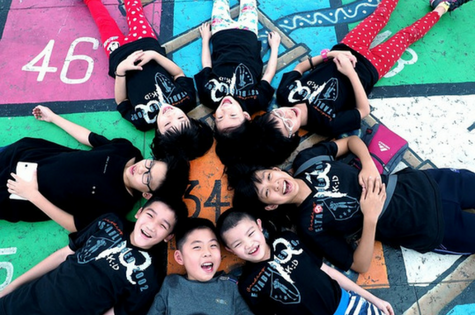When discussing the topic of socialisation for children, it is usual to hear the word ‘development’. Indeed, socialisation helps a children’s development, but in which ways?
First and foremost, socialisation from an early age prepares children for, well, human life. We are a social species, and as such, social skills are key to build the kind of personal and professional relationships that translate into a happy, meaningful, balanced life. Now, let’s get into a more detailed account of the short-term benefits of socialising your kid:
-
Frustration tolerance: in a world defined by an ever-increasing number of ‘instant gratifications’ (thanks, social media!), low frustration tolerance is spreading like wildfire among young children, particularly among those who are exposed to interactive screens. You’ve probably already read about it: screens isolate, group play does the exact opposite thing. Socialisation can work as a remedy, increasing a child’s tolerance to frustration and giving the ability to cope with unpleasant feelings and stressful situations.
-
Learning and respecting rules: group interactions – including play, of course – help children listen to, understand and follow rules. The perk: learning about rules and their functioning in playful environments extends to other situations as well.
-
Building up self-esteem: social interactions face children to a whole new set of situations, helping them build a more accurate image of themselves and their (shifting) role within different groups of people. In most occasions, interacting with peers helps with confidence and shyness.
-
Improving communication: in a group, a child will need to communicate with other children in order to be understood and heard. Socialisation will likely take your kid’s communication skills to a whole new level. In addition, trying to decode your toddler’s wishes and thoughts will become less of a thing as the social skillset is properly developed.
-
Teamwork: in a group, going solo is the less attractive option – teamwork is the natural, and most desirable outcome. Your child will learn to respect the work of others, play a role and become part of something bigger.
These are only some of the many benefits that socialisation will bring to your child’s life. Others include increased awareness, learning to respect other people and becoming used to sharing objects and experiences.
How to socialise your children?
Socialisation in children takes place - almost exclusively - through play. This can happen in both formal and informal environments and situations: from the kindergartens’ playgrounds to a birthday party in a backyard.
Needless to say, it is important to encourage the little ones to integrate themselves to a new group play group, and to overcome that initial shyness which will likely make an appearance. Parent supervision is always advised for safety, but remember to let them be: they will likely be making new friends from the get go!
This article was proudly brought to you by Little Jumpers. Little Jumpers provides quality jumping castle hire in Sydney. They provide a range of popular themed jumping castles including Pokémon, Superman, Minions, Justice League, Toy Story, Mickey Mouse and more. Visit their website to find out more!








 Agree (0)
Agree (0) Disagree (
Disagree (









__small.png)










